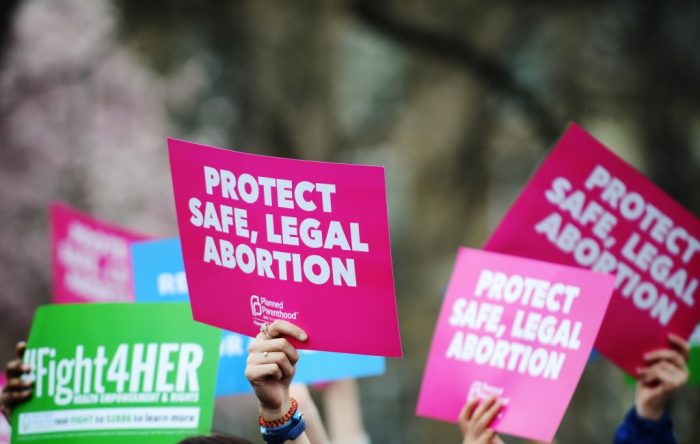
Indiana lawmakers narrowly guaranteed a few ‘exceptions’ in the state’s sweeping abortion ban that went into effect August 1. The problem: too often these kinds of exceptions don’t matter in practice.
Mounting evidence from across the country reveals similar legal exceptions in other states leave pregnant people unprotected and vulnerable. And this is despite ‘exceptions’ they were guaranteed under state law.
Fatal Fetal Anomaly
An Alabama woman’s fetus faced a ‘negligible’ chance of survival after being diagnosed with multiple severe birth defects. Her doctor believed she was eligible for an abortion, but the hospital board disagreed. They argued each individual birth defect did not justify an abortion, even though their combined impact almost guaranteed the fetus would not survive.
Indiana’s exception for lethal fetal anomalies is similarly poorly defined, and leaves much up to the doctor’s discretion. But doctors are forced to walk a thin line – provide the care they think is appropriate or face the threat of medical license removal, hefty fines, or even jail time.
Rape and Incest
A 10-year-old rape victim who sought abortion services in Indiana would struggle to find an abortion provider, even while our state law permits the procedure.
This is because nearly all of Indiana’s largest hospitals say they won’t provide abortion services, even in cases that are permitted under the state’s restrictive abortion ban, as reported by the Indiana Capital Chronicle.
This has already happened in other states. Mississippi’s abortion ban provides an exception for rape or incest, but it was no use to one teenage girl who became pregnant from rape. Her family could not find a provider to perform the procedure.
Life and Health of the Mother
A Florida woman’s water broke at 16 weeks, only one week past Florida’s then 15-week abortion ban. She would certainly miscarry – which can lead to serious, even fatal consequences – but her doctor said inducing labor would mean risking his medical license. He sent her home.
“You’re leaving me to die,” she said. Later, she was admitted to the ICU.
We’re allowing lawmakers – not ourselves or our doctors – to be the gatekeepers of our healthcare. Who can possibly define what it means for our health to be at risk?
A pregnancy means cancer patients must delay time-sensitive and critical healthcare. Depression and anxiety are common pregnancy side effects. In the most serious cases these thoughts can culminate in suicide.
Indiana has long ranked among the worst states for pregnancy-related deaths, especially for women of color. Many experts agree that this will only get worse with an abortion ban in effect.
Doctors Fear Consequences Under Vague Law
A pregnant woman was profusely bleeding but received minimal care in an Ohio ER. There was no fetal heartbeat, but hospital staff feared repercussions under Ohio’s now overturned 6-week abortion ban if they performed a dilation and curettage procedure to stop the heavy bleeding.
Doctors will tell you that medicine is far from black and white, despite the fact that lawmakers seem to legislate like it is.
Indiana doctors are already fleeing the state amid the threat of prosecution from the Attorney General. Nearly 80% of IU School of Medicine students have said they were less likely to practice in Indiana post-abortion ban.
Legal Exceptions Offer Few Guarantees
According to multiple polls, a majority of Hoosiers want women to be able to access care in the cases illustrated above. On paper, Indiana lawmakers can say they have written in those exceptions, but it is clear that these narrow exceptions are unlikely to allow Hoosiers to access care in practice.
Just like we are seeing across the country, Hoosiers are already facing the consequences of Indiana’s vague abortion ban. Because we can never account for all the possibilities that would lead someone to seek an abortion.
Every pregnancy is unique, which is why everyone should have the right to decide when and if an abortion is right for them.
GET THE MORNING HEADLINES DELIVERED TO YOUR INBOX



